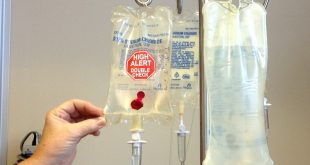Hormone replacement therapy and menopause supplements are options for women experiencing the effects of menopause, such as hot flashes, night sweats, mood changes, and vaginal dryness. However, not all hormone replacement therapy is created equal. These supplements typically contain synthetic versions of synthetic hormones, which are designed to mimic the body’s natural hormone levels. Here is the truth about hormone replacement therapy and perimenopause supplements.
1. There is a real difference between hormone replacement therapy and menopause supplements.
While hormone replacement therapy is a prescription, menopause supplements are sold over the counter without a prescription. They are not regulated by the FDA, meaning they can be made of unknown ingredients or contain incorrect amounts of the active ingredient. This leads to confusion over the actual effectiveness. It’s difficult to tell if you’re getting what you pay for with other hormone replacement options available to women looking for relief from menopausal symptoms.
2. Hormone replacement therapy is proven to be safe and effective, but you should still talk with your doctor before starting.
According to a study published in the Journal of the American Medical Association, menopausal hormone therapy use has been associated with an 18 percent lower risk of breast cancer. Additionally, this same study revealed that women who took menopausal hormone therapy had a 29% higher risk of developing stroke compared to those who did not take these medications. The FDA recommends that women taking this form of hormone replacement therapy use the lowest dose possible for the shortest period of time needed to relieve menopausal symptoms.
3. Medicare and many insurance companies can cover Hormone Replacement Therapy, but not all medicine is.
Many Insurance companies will cover a portion of hormone replacement therapy, especially if your doctor recommends it to ease symptoms caused by declining hormone levels. Blue Cross Blue Shield, for example, provides hormones at no cost to women experiencing menopause symptoms. Knowing whether your insurance covers hormone replacement therapy before starting treatment is important.
4. Menopause supplements often have dangerous side effects that can lead to serious health issues.
Warnings across the packaging and media make it seem like every supplement has a beneficial effect. However, it’s important to keep in mind that medications are not free of side effects. One study showed that women who took menopause supplements experienced a higher mortality rate than those who did not. The most common side effects reported by users were abdominal pain, irregular menstrual cycles, increased breast size, and headaches
While hormone replacement therapy and menopause supplements can be successful, knowing what you’re getting is important before you start taking medicine. It’s best to confirm with your doctor or pharmacist that they may need to order the prescription before making a purchase.
 Camp Hostel Lifestyle Learn About Hostel Life
Camp Hostel Lifestyle Learn About Hostel Life





